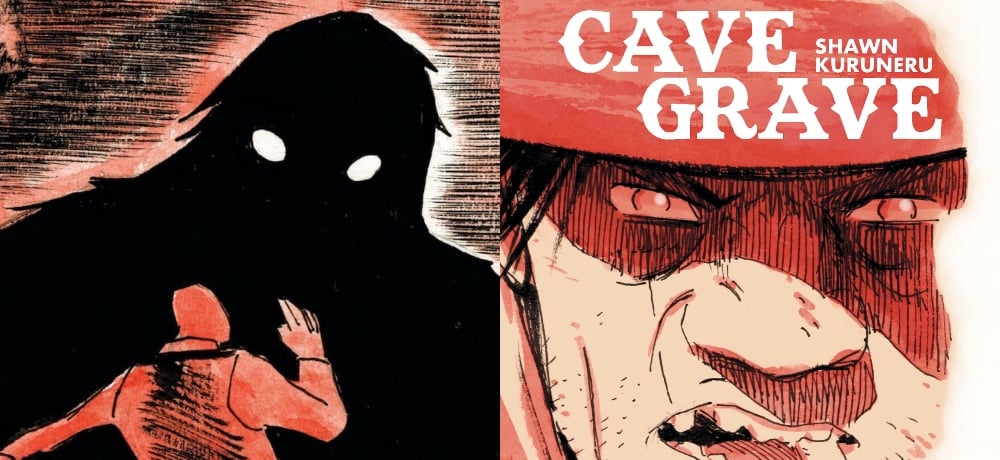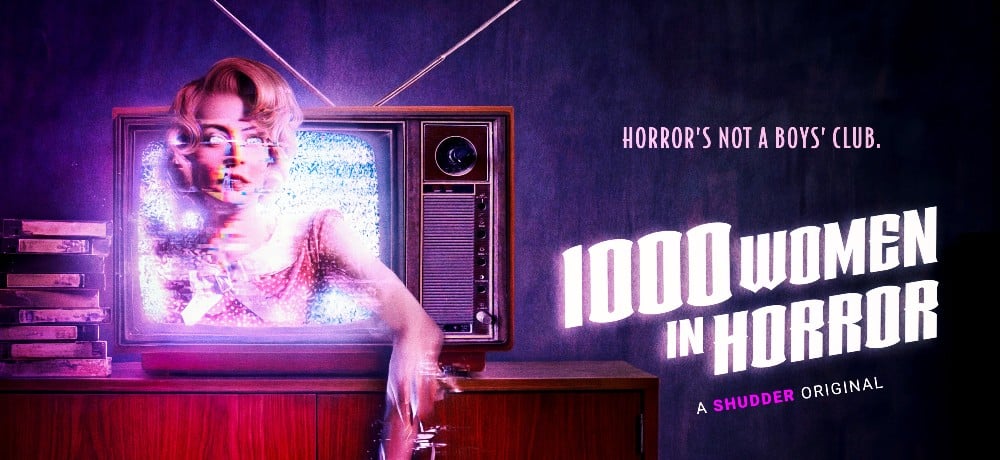





Easily one of the more unforgettable films I’ve seen this year—genre or otherwise—is writer/director Nicolas Pesce’s The Eyes of My Mother, which follows a young woman named Francisca (Kika Magalhaes) as she copes with her loneliness through some rather depraved and heartbreaking ways.
The Eyes of My Mother recently played at the 2016 Fantastic Fest, and while at the festival, we had a chance to speak with the first-time feature filmmaker about his approach to his haunting character study, working with his incredible lead actress Magalhaes, and how he’s trying to bring back the feeling of the classic horror stories most of us grew up on, but with a bit of a modern twist.
Look for The Eyes of My Mother in December when it’s released by the fine folks over at Magnet Releasing.
I would love to hear about how the project came together and where the inspiration came from, because it's such a different genre from what we've seen for quite a while now.
Nicolas Pesce: It all starts with what my parents raised me on. It's funny, we're sitting in The Twilight Zone room right now, because my parents raised me on The Twilight Zone, William Castle movies, Joan Crawford, Bette Davis, and The Night of the Hunter, and, to me, that's what horror was, these really intricate family dramas that used violence and horror to heighten the emotional elements of these stories. At the heart of it, they were really just character pieces.
I wanted to make a movie that was equal parts love letter to that era of horror, but then, also, to explore a character that I think, aside from movies like Henry: Portrait of a Serial Killer, for the most part, you get if there's a Hannibal Lecter as a character, you also have the Clarice Starling. You have the serial killer and then the person who the audience can sit there and be like, "Oh, but I'm not like Anthony Hopkins. I'm like Jodie Foster in this movie."
I didn’t want to give you a Jodie Foster to connect with. I wanted you to feel like you connected and were repulsed by the same person—to play with the idea of a person who does evil things or violent things isn't 100% of the time doing violent things. There's all these quieter in-between moments that are steeped with emotion that make the violent acts a lot more complex and complicated and interesting.
I looked at movies like Repulsion, where you have a female-driven story about a girl who is kind of off, but in Repulsion, she's very much the victim. I wanted Francisca to be Buffalo Bill and Hannibal Lecter and Clarice Starling wrapped up in one. There are moments where you just feel for her loneliness and there are moments where you're disgusted by her behavior, and then, there are moments where you oddly find the beauty in the horror that she's doing. There's a lot more emotion behind it.
To me, the movie is really just about loneliness, about a girl who lost her mother who doesn’t really know how to cope with that. Due to the way in which she lost her mother, it's led her down a particularly dark path, but at the end of the day, it's really just about a lonely girl.
The movie came about when I was working on a movie called James White a few years ago with director Josh Mond. He's part of this collective called Borderline Films and they made a movie called Martha Marcy May Marlene a few years back. I was working with them and we really liked working with each other. They wanted to know if I had a script, and I was starting to think about this. My initial pitch was that Jeffrey Dahmer killed and ate 17 people, but he didn’t spend 100% of his life killing and eating 17 people. He had to go to the grocery store and he had to take a shower and he had to eat dinner. What does that life look like? What does the life that's not the news headline of a killer look like? The Borderline guys helped me put it together and we made it for very little and very quickly.
A big thing that they brought into it was, no matter the genre and no matter the subject matter, no matter how stylized it is, helping to find the way to ground it all so that you don't write it off. You can have a great, thrilling movie, but it was important for me to have the heart and the soul of this character beyond the violence, beyond the trauma, so that there was something grounded and real in this soup of a super-stylized commentary on violence.
You just talked about something that was uniquely compelling to me about The Eyes of My Mother, that you made your antagonist and protagonist into the same person. Is there an art to finding a balance in that kind of character? [Spoiler Warning]
Nicolas Pesce: I was fortunate in that the actor who played Francisca, Kika, I had her involved while I was writing, and being able to talk to an actual person about finding the logic in Francisca’s madness and make it so that, yeah, you do want to hug her in all the places that she needs that love, because I ultimately didn’t want you to get to the end of the film and be happy that she died. The tragedy of the film is that she starts the cycle over with her son and another child has to watch his mother die and who knows what's going to happen to him?
What I always find missing from stories about killers is seeing an actual complexity to their real lives. I've never killed anyone or even thought of committing a murder, so I'm not about to say that I know precisely what that complexity looks like, but I think that very few people who kill are just killing out of this insatiable thirst for human blood. It probably does come from a deeply sad place, and to have Francisca's actions be steeped in both sides of that, to have it dance that fine line in the dance numbers in the movie, it's like, what's too much, what's not enough, what will make us care about her, what will make us hate her?
There were a lot of things that ended up being left in the cutting room as we worked to figure out what was too far, what was too much, and how to keep it ambiguous. There are moments that remain unclear for the audience and that’s what builds the real tension in this story, having all these other layers of whatever is going on with her.
Let’s discuss Kika for a moment, because she’s absolutely phenomenal in the film. How did you guys end up working together and what was it that you saw in her that made you think, “This is definitely Francisca”?
Nicolas Pesce: I had worked with her on a music video. I directed music videos before this. But she had just moved to New York from Portugal, she barely spoke English, and there was just something very, very strange and captivating about her. She's not a particularly dark girl. She actually talks like a Valley Girl and has a happy-go-lucky demeanor, but what you see in the movie in terms of her facial expressions, the way she holds her body, the way she walks, that is 100% her.
There was something otherworldly about her that I just found so interesting. It's almost alien. There's something that's almost alien about the way she moves and her mannerisms, and I just thought it was so interesting. In real life, it's hard to gauge what she's thinking because she's always thinking, and it was just a very interesting experience talking to her the very first time, particularly because of the language barrier. There is something very interesting about the way that she moved about this world physically and emotionally, I thought that if I just put that in my own context, it would give the character a really interesting other dimension.
This is your first feature film and it’s received a really amazing response thus far from all the festivals, and you now have a great distributor for its release as well. Has this whole experience been rather surprising for you?
Nicolas Pesce: It's been very surprising. My initial reaction, especially when I realized that people got what I was doing before I started talking about the movies that I had been inspired by. People really understood where I was coming from and what I was trying to do with it, and what I kept on saying to my producers was, 40 years ago, this was the norm of horror movies. They just stopped making them like this and I'm just doing something that used to be wildly successful. That's something that I stole from Cronenberg, because he always used to say that. He would just go 20 years back to see what was the most popular and do that again.
It's surprising but, at the same time, I knew the type of horror audience that I am, and there are a lot more of me out there. When I saw A Girl Walks Home Alone At Night, I was so excited that someone was doing something different, and then there are movies like It Follows, where it's like, “Oh, you're doing the throwback thing, but you've now done it the best.” Seeing people embrace this type of horror that I personally like has been great. For a while, American horror has gotten homogenized and now, going back and reminding people that there are all of these other worlds and pockets of the genre, it’s just reminding people that this is stuff that was good, still is good, and still works really well.